
“No,” came the prompt reply, “Why should I do so? I have come only to help you in the path of religious life.” The question was strange coming as it did from a husband who was seeing his wife after a gap of almost five years. But then Sri Ramakrishna and Mother Sarada Devi were no ordinary persons. Sri Ramakrishna had verily incarnated on earth to fulfil a divine purpose and it is a well-known fact that when divinity manifests itself on earth, he or she brings along with them their full entourage to help them fulfil their mission. Otherwise, how can one explain the circumstances that led to the marriage of this pair?
“She who is marked for me,” declared the twenty-three-year-old Sri Ramakrishna in an ecstatic state of mind when the topic of his marriage was broached, “is waiting at the house of Ramachandra Mukherjee at Jayrambati.” That “She” was Sarada Devi, five-year daughter of Ramachandra Mukherjee and Shyamasundari Devi of Jayarambati. She was born on 22 December 1853. This divine marriage that took place in 1859 was very much in accordance with the plan of destiny. Of this there can be no doubt for, on an earlier occasion during a temple festival in the neighbourhood of Jayarambati, an infant Sarada on being teasingly asked as to whom she was going to marry, decisively pointed to Sri Ramakrishna who was there in the crowd.
Diese Geschichte stammt aus der January 2021-Ausgabe von The Vedanta Kesari.
Starten Sie Ihre 7-tägige kostenlose Testversion von Magzter GOLD, um auf Tausende kuratierte Premium-Storys sowie über 8.000 Zeitschriften und Zeitungen zuzugreifen.
Bereits Abonnent ? Anmelden
Diese Geschichte stammt aus der January 2021-Ausgabe von The Vedanta Kesari.
Starten Sie Ihre 7-tägige kostenlose Testversion von Magzter GOLD, um auf Tausende kuratierte Premium-Storys sowie über 8.000 Zeitschriften und Zeitungen zuzugreifen.
Bereits Abonnent? Anmelden

Panchakroshi Parikrama of Varanasi
At the snow-capped Kailas, the Divine Lord Shiva was seated with Mother Parvati.
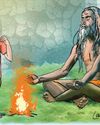
Gadai and the Monks
A fictional narrative based on incidents from the childhood of Sri Ramakrishna.
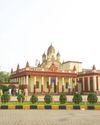
Chintayo momo maanosho Hori...
Sri Ramakrishna loved songs. There probably was no normal day when he did not sing some songs.
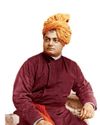
The Vedanta Vaccine
The world is still struggling under the impact of the pandemic due to Covid-19 for the last three years.
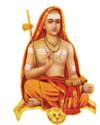
Chandrakirti's Chariot: Self in Madhyamaka Buddhism and Advaita Vedanta
The goal in Advaita Vedanta is the cessation of suffering and the attainment of true fulfillment. Suffering, according to this school, is due to ignorance of the true nature of the self and consequent erroneous identification with the body-mind.
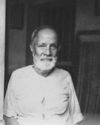
Reminiscences of Sargachhi
Question: यद्यदाचरतत श्रेष्ठसतत्तदरेवरेतरो जनिः। ‘Whatever a superior person does, others do the same thing!’ (Gita 3:21) – What does this statement mean?
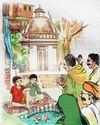
THE AUTUMN FESTIVAL
A fictional narrative based on incidents from the childhood of Sri Ramakrishna.
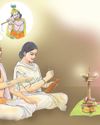
Bards of Guruvayur: Vilwamangalam II
Saints of India
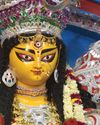
In the Universal Mother’s Divine Playground
Swami Vivekananda never taught the worship of Mother Kali. In a letter to Mary Hale he writes, “Kali worship is not a necessary step in any religion.
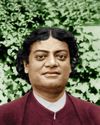
Swami Vivekananda: A Sportsman Par Excellence
In various books and articles, Swami Vivekananda has been called a spiritual leader, a prophet, a patriot, a social reformer, a philosopher, a yogi, a writer, an orator, an educationist, a musician, and so on.